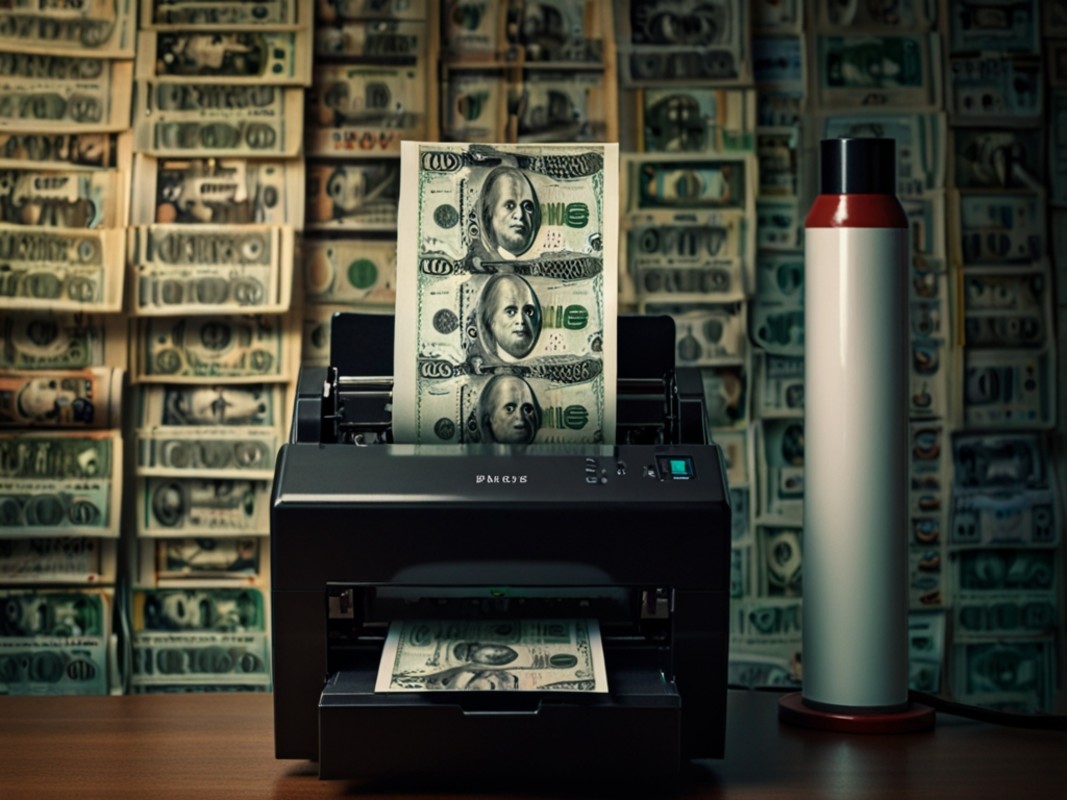
Lebanon has once again captured global attention as tensions escalate in the Middle East. Prior to these recent occurrences, the nation had already become emblematic of how rapidly a seemingly stable society can unravel into turmoil.
For those who keep an eye on significant global economic events, you may remember that Lebanon’s recent history vividly illustrates what a catastrophic currency collapse looks like within a modern, developed economy. While several insightful books discuss hyperinflation in dry, academic terms, often overlooked is the human element—the experience of a normal, productive individual with a family and bank account navigating through the collapse of their nation’s currency.
For some time, I was aware that my friend Tony Yazbeck, co-founder of The Bitcoin Way, had lived through this reality. However, it was only after viewing this interview featuring him that I truly grasped the significance of his story for all to hear. Tony’s narrative provides a rare, personal insight into what happens when your nation’s banking system fails, when access to your savings is lost, when food costs increase tenfold in a matter of months, and when even basic necessities like medicine and fuel become unaffordable luxuries.
I reached out to Tony to discuss not only the reasons behind Lebanon’s collapse but also how bitcoin could have been a vital lifeline during such a critical time.
Lebanon: A nation on the edge
Before its economic downfall, Lebanon was a lively, cosmopolitan country often referred to as the “Paris of the Middle East.” Its economy thrived on banking, tourism, and service sectors, making it a hub between East and West. For Tony, this flourishing was no illusion—it was his reality. “Life in Lebanon was extraordinary,” he reminisces. “I operated three successful businesses and enjoyed a luxurious lifestyle. Whether it was the newest cars, the finest dining, or the trendiest clubs, Beirut had it all.”
However, beneath this facade, significant weaknesses were emerging. The banking sector—once a point of national pride—was propped up by unsustainable practices, and the country was heavily indebted. For years, Lebanon’s central bank kept the Lebanese pound linked to the U.S. dollar at an artificially elevated rate, fostering a deceptive sense of stability.
Maintaining this currency peg necessitated continuous inflows of dollars. When those streams stopped, the entire system collapsed.
In 2019, Lebanese banks began to limit access to savings, implementing informal capital controls without any legal basis. “Overnight, people lost access to their money,” Tony explains. “You couldn’t withdraw your own funds, and even if you could, it was in Lebanese pounds, which were plummeting in value.”
For anyone unfamiliar with a currency crisis, the restriction on bank withdrawals is typically one of the first signs that the system is failing. Governments and banks attempt to delay the inevitable by locking down money within the system. By that point, though, it’s often too late.
From successful business to $70 in hand
In early 2020, Lebanon defaulted on its foreign debt, which triggered a steep devaluation of the Lebanese pound. Hyperinflation emerged swiftly, obliterating the purchasing power of average citizens.
Tony witnessed helplessly as his savings vanished and his businesses collapsed. “I transitioned from being a successful entrepreneur to having just $70 to my name in what felt like an instant,” he recounts. “I couldn’t pay rent, school fees, or even afford basic groceries.”
Hyperinflation escalated at a staggering pace. “A loaf of bread that previously cost 1,500 LBP skyrocketed to over 30,000 LBP in merely a few months,” Tony clarifies. Fuel prices worsened even more. “In early 2023, a gallon of gasoline surged from 25,000 LBP to over 500,000 LBP in a matter of weeks. Keeping up with such prices became impossible.”
The devastation extended beyond material wealth; the psychological impact was immense. Tony describes the anxiety and desperation that came with witnessing his hard-earned success evaporate. “For the first time, I truly felt lost. I was utterly powerless.”
A fractured civil society
As Lebanon’s currency crumbled, so did its social structures. Individuals who once enjoyed comfortable, middle-class lifestyles suddenly faced struggles for basic survival. Essential goods became scarce, driving everyday prices through the roof.
Power dynamics within communities shifted, with those controlling essentials such as food and fuel gaining disproportionate power. “There were reports of gangs seizing control of neighborhoods, dictating access to goods, and demanding protection fees,” Tony reflects.
Even electricity became a rare commodity. With the national grid in disrepair, most had to rely on private generators, with costs soaring. “Monthly generator expenses skyrocketed from 200,000 LBP to over 4,000,000 LBP,” Tony indicates. Many families endured long periods without any power.
In the face of the crisis, people sought alternative means of exchange. Bartering became widespread, with individuals trading goods and services directly. “If cash wasn’t an option, someone might offer plumbing services in return for groceries,” Tony explains. The U.S. dollar, already utilized prior to the collapse, became the default currency for many transactions. Digital currencies, especially stablecoins like Tether (USDT), also gained ground as individuals searched for ways to retain value outside the failing banking system.
What could have been: Bitcoin as a lifeline
Reflecting on the collapse, large questions arise: Could this have been avoided? Or at the very least, could individuals have taken measures to protect themselves? For Tony, the answer is unambiguous: Yes—if they had access to bitcoin, many of the dire consequences of the crisis could have been mitigated.
“Had I been aware of bitcoin prior to the crisis, it might have saved me,” Tony states firmly. “Bitcoin would have provided me a means to store value outside the banking system, which ultimately failed me. I wouldn’t have been excluded from my savings, and I could have retained my wealth as the Lebanese pound crashed.”
Bitcoin is resistant to the types of capital controls that Lebanon’s banks executed in 2019. No government or bank can freeze your bitcoin or limit your access to it. In a country where the banking system became a trap, bitcoin could have offered a means of escape.
Even as Lebanon’s currency lost over 90% of its value, bitcoin maintained its global purchasing power. “Bitcoin isn’t tethered to any government or central bank, so it can’t be manipulated like the Lebanese pound was,” Tony points out. “It acts as a hedge against hyperinflation, which would have been critical as prices doubled or tripled within months.”
Bitcoin’s classification as a digital bearer asset would have been equally crucial. “When cash becomes worthless and banks cease to operate, how do you handle transactions? How do you engage in trade?” Tony asks.
In Lebanon, bartering and informal trades became essential for survival. In numerous situations, bitcoin could have stood as a practical alternative to barter, worthless Lebanese pounds, and U.S. dollars that were hard to secure.
Lessons for the global community
Lebanon’s crisis serves as a stark cautionary tale for the world. While many in developed nations might believe their economies are too stable to face such a collapse, Tony’s experience serves as a sobering reminder. “What occurred to me could happen anywhere,” he warns. “Do not assume you are impervious simply because you reside in a supposedly stable nation. The mechanisms of fiat currency are consistent everywhere.”
Tony references the U.S. as a case study of a nation that is following in Lebanon’s footsteps. “The U.S. national debt has now surpassed $35 trillion. Since 1971, when the dollar was decoupled from the gold standard, the money supply has surged by more than 8,000%. Such rampant money printing cannot persist indefinitely.”
While the U.S. enjoys the benefits of being the issuer of the world’s reserve currency, that privilege is not a permanent guarantee. “Ultimately, all fiat currencies will trend toward zero,” Tony cautions. “Some will falter sooner than others, but they all will fail eventually. The U.S. dollar may be the last to go, but its moment is on the horizon.”
The lessons extracted from Lebanon’s downfall are unmistakable: safeguard your assets before a crisis strikes, and do not trust that your government or banking system will be your safety net when challenges arise. For Tony, this means embracing bitcoin. “Bitcoin is the only asset that is genuinely un-confiscatable,” he asserts. “It provides an escape from a shattered system.”
A renewed mission to rebuild with bitcoin
In the wake of Lebanon’s collapse, Tony has committed himself to assisting others in avoiding a similar fate. He established The Bitcoin Way, a bitcoin education and technical services venture aimed at teaching individuals how to leverage bitcoin to shield themselves from currency crises. “The crisis compelled me to delve into and comprehend the nature of money,” Tony shares. “I recognized that the fiat system is a deception designed by crooks to exploit and control us. Bitcoin is the resolution.”
Daily, Tony informs his clients about how to seize control of their financial destinies through bitcoin. “Once you grasp how bitcoin operates, the flaws in traditional fiat systems become evident,” Tony explains. “You learn to manage your assets securely, transact independently of banks, and safeguard your wealth from inflation and economic volatility.”
The path forward
Tony believes that Lebanon’s currency collapse was preventable, but it required structural reforms that were never enacted. “Had Lebanon addressed corruption, upheld transparency, and managed the currency peg responsibly, outcomes might have been different,” he states.
However, given the entrenched corruption within Lebanon’s political and financial structures, the crash was nearly predetermined.
As Tony ponders his journey, he identifies similarities between pre-collapse Lebanon and the present situation in numerous developed nations. “We are witnessing the same challenges—ballooning debt, unsustainable monetary policies, and corrupt institutions,” he remarks.
Warning signals are apparent, yet many choose to ignore them, mistakenly believing their country is uniquely insulated.
For those who are vigilant, Tony offers actionable guidance. “Begin to educate yourself about bitcoin now, before it becomes too late,” he implores. “Diversify your assets and don’t depend on fiat currency to maintain your wealth. The principles of hyperinflation remain constant, regardless of whether you reside in an affluent nation.”
The collapse of Lebanon serves not solely as a cautionary narrative for those in developing contexts but as a wake-up call for the entire globe.
As governments persist in printing money at unprecedented levels, the likelihood of a worldwide currency crisis intensifies. Bitcoin presents an alternative—an inflation-resistant safeguard to preserve individual wealth when fiat currencies falter.
Tony’s story is a powerful reminder of the vulnerabilities inherent in fiat systems and the necessity of financial autonomy. “With bitcoin securely in your possession, you can guard against corruption, manipulation, and inflation,” Tony states.
“You don’t need the approval of a bank or government to manage your finances. That fundamental characteristic defines bitcoin as the ultimate instrument for financial liberty.”
This is a guest post by Dave Birnbaum. The opinions expressed belong to the author and do not necessarily reflect the views of BTC Inc or Bitcoin Magazine.








